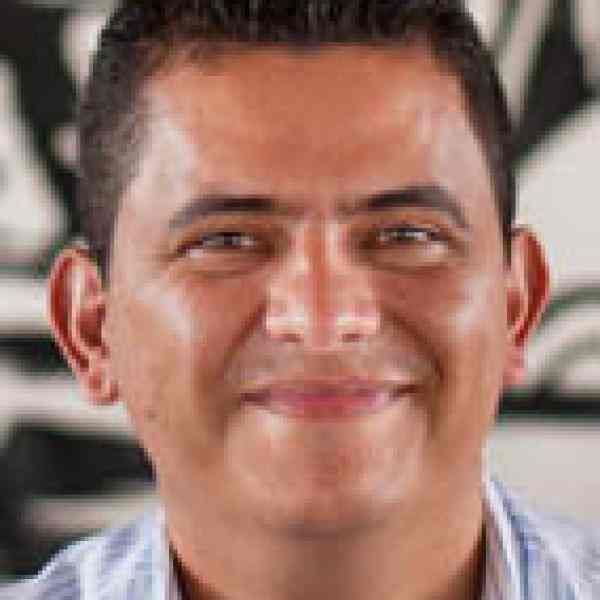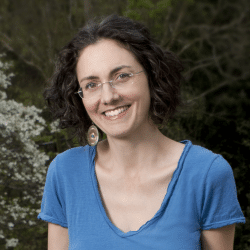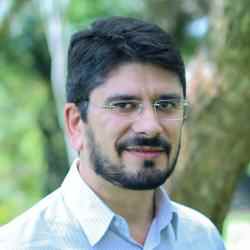Introdução
Wagner Gomes has created a development initiative that unites students from rural backgrounds with impoverished farmers in the Northeast of Brazil to collaborate with one another and increase their productivity.
A nova ideia
By bringing recent university graduates with rural upbringings together with small farmers in the semi-arid Northeast of Brazil, Wagner’s Local Economic Development Agency (ADEL) is giving poor farmers much-needed technical assistance for improving their productivity and marketing their products. As a result of his efforts, the farmers in this region are working together to share ideas and better sell their crops at the local and regional markets at higher prices, thereby, generating higher income to improve their quality of life.
ADEL is made up of young people from rural towns that have had the opportunity to acquire modern expertise in relevant fields that complements their traditional knowledge from the farm. Together with rural producers, they craft local diagnoses to identify the most viable marketing tactics, encourage the creation of farmers’ associations, provide technical support, and help build better systems for harvests and crop sales. Because the graduates have lived in the rural farming communities, they have greater sensitivity to the farmers’ particular needs and can earn the confidence of the older farmers. At the same time, they improve their practical knowledge of agricultural production and marketing techniques by learning alongside experienced farmers. Committed to promoting the development of the agricultural sector, Wagner recently instituted new initiatives to help young people who decide to remain in their community to become successful rural entrepreneurs.
Besides facilitating their training, Wagner is bringing farmers together for the first time to enhance their production and sales in a concerted way. ADEL helps unite them into networks of producers, which enables the farmers to align strategies and share resources in a way unheard of in the semi-arid region. These networks also serve to better leverage external ties with the private and public sector. In ADEL’s most critical alliance, the Bank of Northeast of Brazil (BNB) now supplies farmers with greater access to credit and assistance in debt negotiation. Such relationships are fundamental for Wagner in his plans for long-term impact as he expands to more farmer communities as well as implements new initiatives for young farmers. Wagner expects that ADEL will become a replicable model by strengthening farmers’ capacity and by encouraging rural youth entrepreneurship in the Northeast of Brazil and beyond.
O problema
In Brazil’s enormous semi-arid region in the Northeast, family farming is the main economic activity, but sadly the per capita income of this population is US$45 a month, well below the poverty level. The lack of underground water and long periods of drought combined with a historic denial of basic human rights leaves this population with very restricted opportunities to live with dignity. Relevant education in modern agriculture is also unavailable, and as a result many small farmers still employ primitive and inappropriate techniques in crop production and sale. In most cases, they occupy only the initial stages of agricultural supply chains; surplus harvests are sold primarily to local markets or distributors who end up reaping a large share of the profits.
Relevant education in modern agriculture is unavailable, and as a result many small farmers still employ primitive and inappropriate techniques in crop production and sale. In most cases, they occupy only the initial stages of agricultural supply chains; surplus harvests are sold primarily to local markets or distributors who end up reaping a large share of the profits.
Compounded by restricted access to credit, the obstacles facing small farmers due to their lack of technical expertise prevents them from achieving economic viability. They lack specialized training and sustained technical assistance in crop production, marketing, and distribution of goods. They also rarely engage in fruitful alliances with other farmers. Small farmers could actually earn more income by forming collaborative arrangements to process and market their produce, but without a culture of cooperation, there is no will to exchange ideas. This is an especially difficult issue in the semi-arid region, where farmers could benefit from sharing practices to overcome the geographic and climactic factors affecting their harvests. Unfortunately, without this support or knowledge, small farmers do not know how to reduce costs, increase their efficiency, or adopt new modern equipment.
Growing up in this environment, the younger generations of most farmers in the Northeast have especially dim prospects for their futures. Many children end up migrating to the cities, fraught as they might be with danger and unknowns, in search of a dignified life, rather than staying on their family’s farm. Unfortunately for these rural communities, the youth are talented and important assets for a region in need of adapting to new trends and technologies. Although young people still often have the chance to innovate and develop creative solutions for their families’ problems, on the whole their potential is underused.
A estratégia
Wagner led a group of young people from the semi-arid region to establish ADEL in 2007 with the aim of promoting a better life for small farmers. Taking advantage of their own experiences growing up in this environment and later earning degrees in higher education and specializing in diverse fields, these young people have established a model of agricultural development. They introduce new knowledge, blend it with traditional farming practices, fashion new associations of producers to share experiences and implement them together. Wagner has organized ADEL into three distinct programs that separately offer training and advisory capacity, forge cooperative partnerships among farmers, and prepare young rural entrepreneurs for leadership in the farming sectors.
The Josué de Castro Program is the core of ADEL’s programs to develop farmers’ abilities. Upon identifying a community from their own understanding of farming areas in the semi-arid region, the team of graduates first studies its needs and particular conditions. ADEL members will compile a socioeconomic diagnosis of skills, limitations, and potential harvest capacity. This also includes an assessment of existing governance structures. From this evaluation ADEL staff and farmers craft a training plan for improving three areas: Technical and management skills, collaborative skills, and infrastructure for productive arrangements. Equipped with this scheme, ADEL intervenes with the technical and administrative training for the small farmers and their families, giving special attention to youth and women.
In addition to providing training, Wagner and ADEL are linking farmers with one another to increase their capacity through cooperation. Together, the farmers learn to share knowledge and figure out how to market their products more effectively. ADEL also teaches farmers about structures of community governance and group management. The direct ADEL interventions last about three months, but to ensure a sustained impact, ADEL remains a contributing member to the farmers’ associations. ADEL’s continued assistance helps to create an environment for the sustainable implementation of tools and skills acquired in the previous phases.
Wagner and his associates also engage farmer groups in its second project, the Territorial Networks Creation Program. This complements the technical advisory modules because it has a wider geographic reach, which allows it to assist groups of farmers—either pre-existing or created with support from ADEL—to create networks of small producers from disparate locations. The larger span and scope of these coalitions also give them leverage on a public policy level. In order to forge sustainable and productive networks, ADEL’s staff organizes regional forums to exchange information among farmers and help them establish collective strategies for production and sale of their crops. Also present at these forums are local development agencies, local and regional politicians, banks, and potential distributors; therefore, forum participation becomes especially appealing for the farmers as a way to interact with different institutional actors that could benefit their crop yield. ADEL serves as the link between small producers, potential investors, and policymakers, making possible relationships that otherwise would be unavailable to small farmers.
The BNB is a vital financial partner to ADEL and its farming communities. The bank invests in the organization’s training and support programs and then transfers funds to the farmers’ associations and cooperatives so they may hire ADEL for continued technical support. BNB recognizes that ADEL is committed to boosting incomes and opportunities for the region’s development in addition to enabling the farmers to pay off their debts. ADEL’s model of financial viability is being reproduced with several other partners who wish to invest in rural small businesses with the potential for long-term viability. Overall, about US$5.4M from the bank have reached farmers through ADEL; distributed as support for technical assistance and credit for improved farming operations.
More than 600 farmers from 72 communities have benefitted from ADEL’s work in the state of Ceará. These farmers have formed some 70 different collective entities that can partner with external actors such as the BNB and have increased productivity and production quality. In addition, some ADEL-backed farmers have formed four different certified agro-industrial companies that are selling products nationwide.
To bring younger generations into his organization’s agricultural initiatives, Wagner recently launched the Rural Youth Entrepreneurship Program, which nurtures young people who would like to stay in the semi-arid region rather than attend university or migrate to the cities. The program identifies potential leaders through a selection process of young applicants in a given community and trains them to become agents of local development, initially in their family’s work. Through their coursework, participants become conscious of current opportunities in agriculture and begin to devise community objectives such as the development of micro-enterprises. They become points of reference and models of success. At the same time, older producers share their expertise, fostering an intergenerational dialogue that produces innovative solutions for small landowners and serves to complete the positive feedback loop for the young assistants from the Josué de Castro Program. Today, eighty young people work in the organizational processes of associations, cooperatives, and fairs and at least twenty-five are actively spreading agro-ecological production techniques around communities.
Looking toward the future, Wagner and his ADEL associates plan to open new programs that can broaden and deepen the impact of his existing framework. For instance, he wants to spread the Rural Youth Entrepreneurship Program to more communities, taking advantage of the financial support of a private institute to launch a Center for the Young Rural Entrepreneur. Once they have systematized their methodology, the ADEL team foresees launching their work in other Brazilian states as well. Such expansion efforts will rely on the external affiliations that ADEL and the community forums have negotiated, especially with the BNB. With the networks of farmers, Wagner has created sturdy and powerful alliances that are ready for replication around the semi-arid region.
A pessoa
The son of two life-long farmers, Wagner was born in Monte Alverne, a small rural community of 40 families located the semi-arid region of Ceará. During his childhood and adolescence, his only future prospect was to preserve and carry on the work of his parents, cultivating the land with his siblings. Yet his parents always valued education, and Wagner came to realize that another path was possible.
In 2002 Wagner completed high school and aspired to attend university, but due to economic troubles, he had to postpone his dream. During the interim, he found support from the Group-Based Educational Program (PRECE), an educational and social movement led by Ashoka Fellow Manoel Andrade that supports young peoples’ attempts to obtain higher education. More valuable than the resources, though, the program showed Wagner the power of cooperatives and of young people like himself coalescing into networks to promote development in their rural communities. Wagner remained involved with PRECE even after starting with the Faculty of the Department of Economics at Federal University of Ceará. Eventually he was tasked with the administrative functions for the organization.
During his work with PRECE, Wagner decided to devote his life to improving the social and economic conditions of rural communities. He was particularly motivated by a contradiction he observed at the university; how students embraced modern concepts of agricultural development in school, but at the same time, toiled with the traditional challenges of living in rural communities. At only 25, Wagner brought together other young colleagues to found ADEL as a way to reconcile this inconsistency.
In just a few years, Wagner’s organization has been recognized for its innovation and results in agriculture. In 2010 ADEL won second place for the Rosani Cunha Award for Social Innovation awarded by the Ministry of Social Development, and Wagner was honored as the Future Social Entrepreneur of the Year by the newspaper Folha de São Paulo in partnership with the Schwab Foundation. In February 2011, he also received the Ozires Silva Award for Social Entrepreneurship from the prestigious Getúlio Vargas Foundation, which recognizes innovative initiatives addressing sustainable social and environmental issues. Such awards further legitimize Wagner’s work in bringing together farmers and students to spread advanced agricultural techniques, form new alliances, and cultivate a new generation of rural entrepreneurs.



